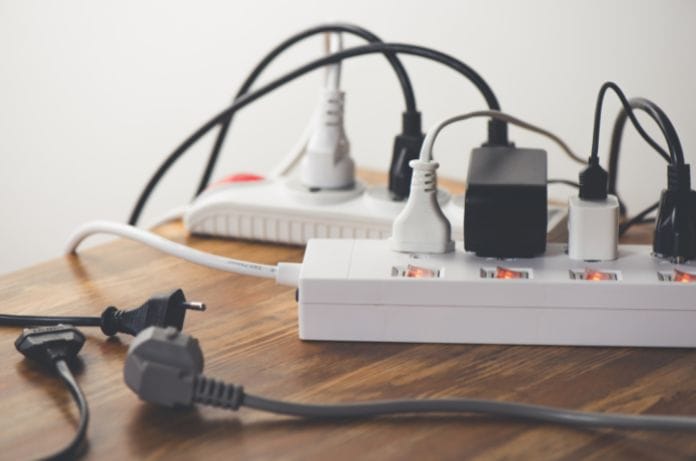We don’t give much thought to the electricity that runs through our homes, powering everything and enabling us to continue our lives easily. Despite the ease it brings, electricity and the cords that carry it can become a hazard if we aren’t careful. Following some of these safety practices for your electrical cords is crucial, as it increases the protection of your home.
Avoid Tripping Hazards
If you have kids or older adults in the home, you should secure cords to prevent any accidents. Cables can be very easy to trip on, so you should keep them in areas that don’t have lots of traffic. If you must have a cord running through an area that people frequently walk through, consider utilizing zip ties with adhesive backs to secure the cords to a wall.
Tidy Up Cords
You might think you only need to worry about your cords when actively using them, but that’s incorrect. If you have any animals or little ones, they can get into the most unassuming places. They can end up playing with the cords or chewing on them, so you must keep your cables tidy and securely store them away.
Thankfully, there are many great DIY solutions you can utilize to keep your cords tidy and free from tangles. One fun trick is to use a pool noodle to prevent cord tangling. Cut it vertically and place your cords inside. Doing this keeps them organized as well, so it’s much easier to find a specific one later.
Replace Damaged Cords
You’re probably using a couple of cords right now that are a little worse for wear. While you might think that’s okay, using a damaged cord can result in an electrical fire or electrocution. Replace any and all cords you own that have signs of damage, such as cracks or frays. It may seem like a nuisance, but buying new cables is an essential safety practice for your electrical cords.
Unplug Cords
This safety practice tends to be among the hardest to do, as it’s not easy to remember. However, it’s highly useful to make a habit of unplugging the electrical cords you aren’t using. Unplugging your cables will prevent devices from using electricity when they’re off. Moreover, you also protect your electrical cords from damage in the event of a power surge.






